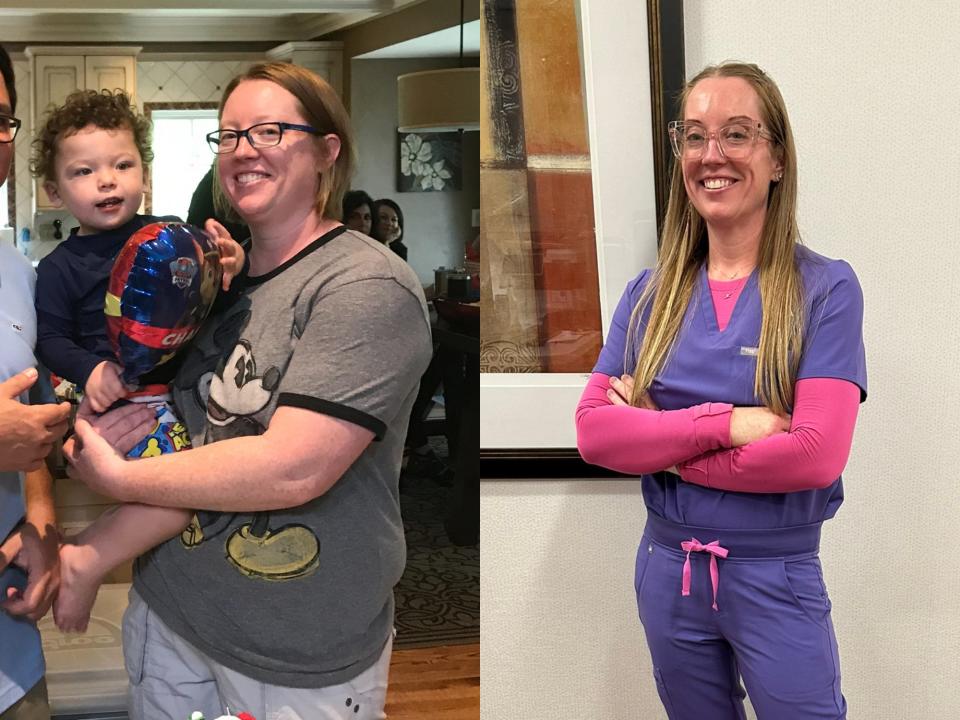A doctor who lost 80 pounds shares her diet before and after losing weight

Dr. Betsy Grunch lost 50 pounds by intermittent fasting and eating a high-protein diet.
She maintained her weight loss for over four years, before losing more on Mounjaro.
Grunch cut down on fast food and focuses on whole foods, she said.
Dr. Betsy Grunch knows from experience that losing weight long-term isn't as simple as just eating less and moving more.
Although she is a neurosurgeon specializing in spine surgery, she didn't actually receive much nutritional education in her medical training and found herself trapped in an unhealthy cycle of weight loss and regain on fad diets, the 43-year-old from the outskirts of Atlanta told Business Insider.
By educating herself about nutrition, she was able to lose 50 pounds and keep it off for over four years. For her, that involved intermittent fasting combined with a high-protein diet focusing on whole foods.
But she also learned there's more to weight loss than just what you eat. It was also important for her to know her goals and try to maintain a positive relationship with her body.
"Weight loss has such a huge psychological component," Grunch said.
To lose another 30 pounds, Grunch took Mounjaro, a diabetes drug part of the buzzy new class of medications known as GLP-1s, off-label.
Crucially, Grunch still eats a similar diet from when she started her weight loss journey in 2018.
Grunch used to eat high-calorie convenience foods
As a busy doctor and mother to two children, finding time to prepare nutritious food is challenging for Grunch.
Before losing weight, she'd regularly eat whatever fast food she could quickly grab at the hospital, such as pizza or Chick-fil-A, she said.
Drinks were also a big source of calories for Grunch, who would regularly knock back three or four sugary sodas a day, plus energy-dense coffees such as frappuccinos, she said.
"I didn't realize what the cumulative effects of all that was," Grunch said. "Just like every other American, really."

Grunch eats a high-protein, lower-carb diet
For Grunch, intermittent fasting involves eating all of her food in a six- to eight-hour window and fasting the rest of the time, except for a coffee with some heavy cream and MCT oil in the morning.
Grunch typically eats a large, high-protein lunch based around chicken or fish at 12 p.m. or 1 p.m., and then a lighter dinner, sometimes whatever her kids are having.
Research shows that there's nothing special about intermittent fasting for weight loss (and strictly speaking, Grunch's morning coffee breaks her fast), but it helps some people maintain a calorie deficit, which is the only way to lose weight.
Grunch's high-protein diet helps her to stay feeling full, maintain muscle, and recover from workouts. She also eats lower-carb, and while they're not more fattening than any other food, Grunch said she feels better that way.
She also aims to eat mostly whole foods. "I feel better when I don't eat processed foods and gluten," Grunch said.
If you have an interesting health story to share, contact Rachel Hosie: rhosie@businessinsider.com
Read the original article on Business Insider


